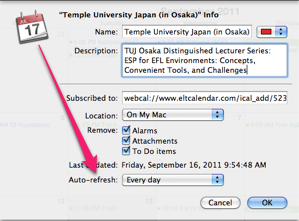Hokkaido JALT:
�Teaching English in Japanese High Schools
Date: Sunday, February 14th, 2016 Time: 2:00 PM - 4:00 PM
Speaker: Hatsuko Itaya, Aiko Sano and Matthew Neapole
Description:
Schedule:
- 2:00-2:30 Effects of using English in high school homerooms (Hatsuko Itaya)
- 2:30-3:00 Networking and break time
- 3:00~4:00 Valentine's Day tips for a happy team teaching experience: Beyond the static view of native and non-native teacher roles (Aiko Sano & Matthew Neapole)
Effects of using English in high school homerooms
Hatsuko Itaya
MEXT's new policy for high school English education is that ?classes are to be conducted in English in principle. This guideline, however, is not always followed. The presenter conducted a survey and discovered that 82 per cent of her students at high school preferred classes to be "examination oriented" rather than "communication oriented", and wanted exam-related teaching to be given in Japanese. Therefore, the presenter used Japanese when explaining how to tackle complicated exam questions to make full use of limited class time. However, in order to increase students? exposure to spoken English, the presenter conducted morning and afternoon homeroom (HR) sessions in English for two years. In addition, every day one student had to give an English speech for one minute during the morning HR. The result was that most of the students, who didn't think the idea feasible, responded in questionnaires for two consecutive years that they wanted the English HR to be continued the next year. They also felt that the English HR was beneficial for entrance examinations. In addition, parents also expressed very positive attitudes toward this trial.
Hatsuko Itaya is an associate professor at Hokkaido Musashi Women's Junior College. She had been teaching at three different high schools and a cram school or Yobikou before taking up her current position in 2014. Her research interests include test washback, teaching methods for high school students and more recently she has been researching interpretation in sport. She has co-authored university exam prep books published by Obunsha and she is also the author of an exam prep book for high school students.
Valentine's Day tips for a happy team teaching experience: Beyond the static view of native and non-native teacher roles
Aiko Sano & Matthew Neapole
The Japan Exchange and Teaching Programme (JET) started in 1987 with only 848 college graduates from four countries. The number has grown substantially over decades with some 4786 new JET participants from 43 countries in 2015. The government of Japan is aiming at increasing the number of the participants to 6000 by the year 2020, when Tokyo hosts the Olympic Games. Since JET started, many problems have been pointed out about the programme and many teachers (both Japanese Teachers of English and Assistant Language Teachers) go through traumatic experiences of unsuccessful team-teaching. Often it is suggested that Japanese Teachers of English should take the non-native speaker teacher role and explain grammar and other complicated contents in Japanese or modified English, while Assistant Language Teachers should maximise the students? exposure to the authentic use of the target language. Ideally they should take turns in leading classes so that they are teaching on an equal level. Is this really the best way to conduct team teaching? In this short presentation, we will explore the (many) reasons why team teaching can go wrong, and analyse what made our team teaching a happy experience for both us and (hopefully) for our students.
Aiko Sano is currently an associate professor at Hokkaido Bunkyo University. She taught at a public high school for 15 years while pursuing her MA degree in second language education at University of Toronto. Her main research interest is literacy development of bilingual children, and she is currently conducting research in Toronto, Hong Kong, as well as the Deaf school in Sapporo.
Matthew Neapole is Canadian. He was born near Toronto, Ontario, grew up in Ottawa. He went to Carleton University, then transferred to University of Calgary. He graduated in May 2010. He came to Japan the following year, August 2011. He is now in his fifth year of being a JET Assistant Language Teacher.
Organization: Hokkaido Chapter of the Japan Association for Language Teaching (Hokkaido JALT)
Cost: 500 yen
Venue: L-Plaza 4th Floor
Location: Sapporo City, Hokkaido Prefecture, Japan
![]() Add this to iCal
Add this to iCal
![]() (Need help?)
(Need help?)
![]() Add to Outlook
Add to Outlook
![]() (Need help?)
(Need help?)
You can add this event to your iCal calendar.
- Click on the iCal icon. Your iCal software will start.
- Click 'Subscribe':

- Under 'Auto Refresh', select 'Every day' in case the the basic details change:

You can add this event to your Microsoft Outlook calendar.
- Click on the MS Outlook icon.
- See what happens.
- Tell us what happens. I don't have MS Outlook on a Windows computer, so I can't test it.
- If you click on the icon and nothing happens, do this:
- Right-click on the icon and save the file.
- According to Microsoft's support page, in Outlook's File menu, you should click Import and Export.
- Click to select Import an iCalendar or vCalendar file (*.vcs), and then click Next.
- Click to select the vCalendar file you've just saved, and then click Open.
Contact Hokkaido JALT
Website: http://jalthokkaido.net
Email QR Code:





